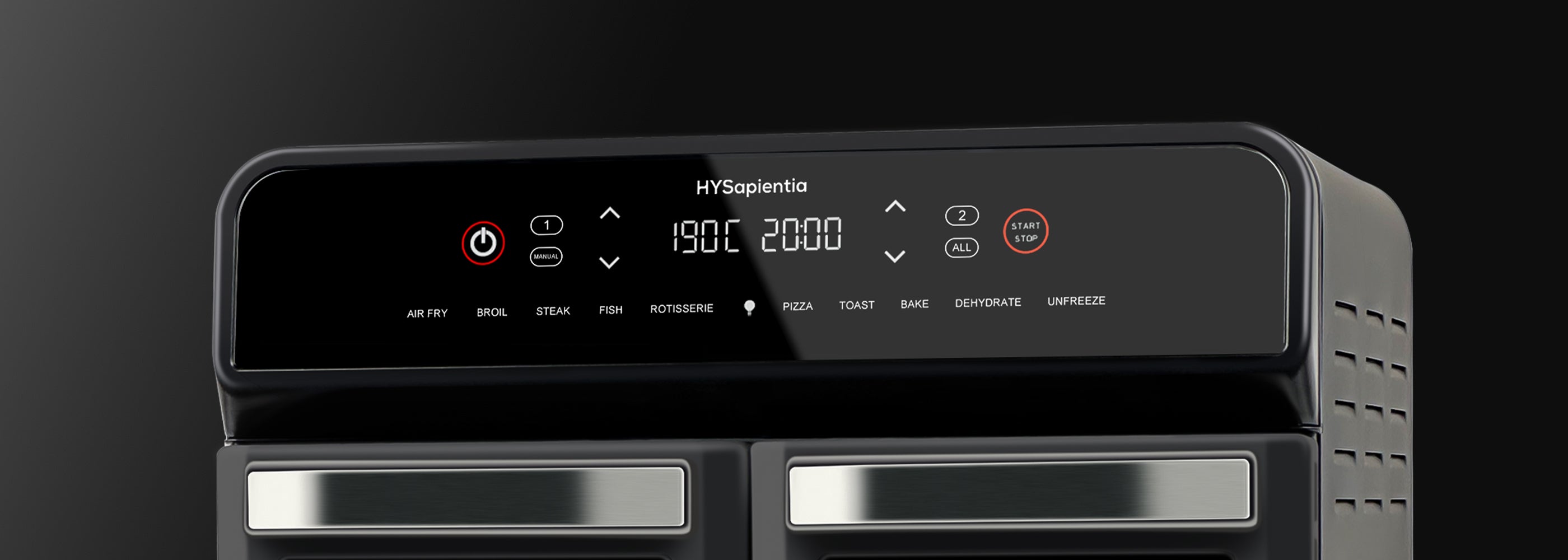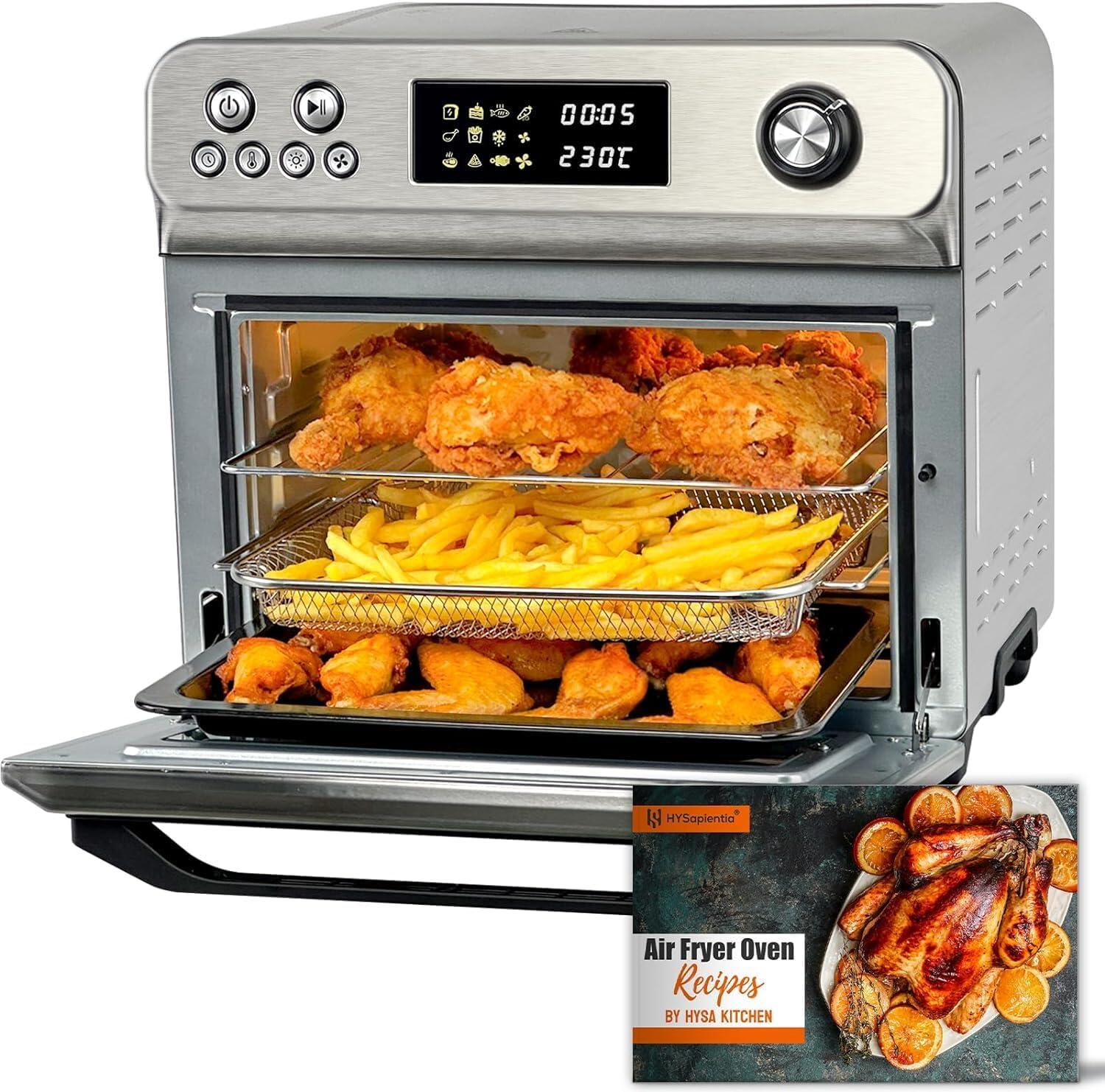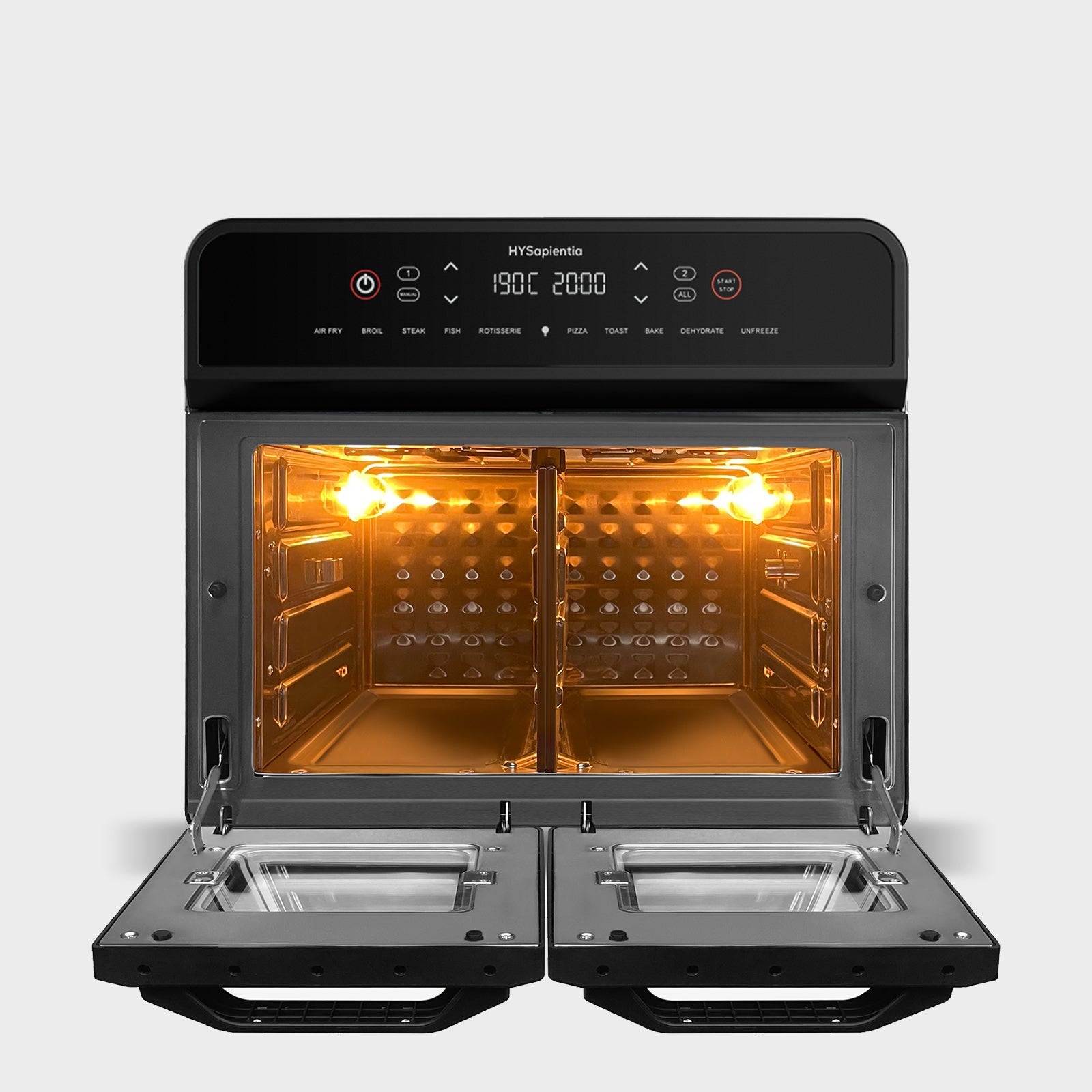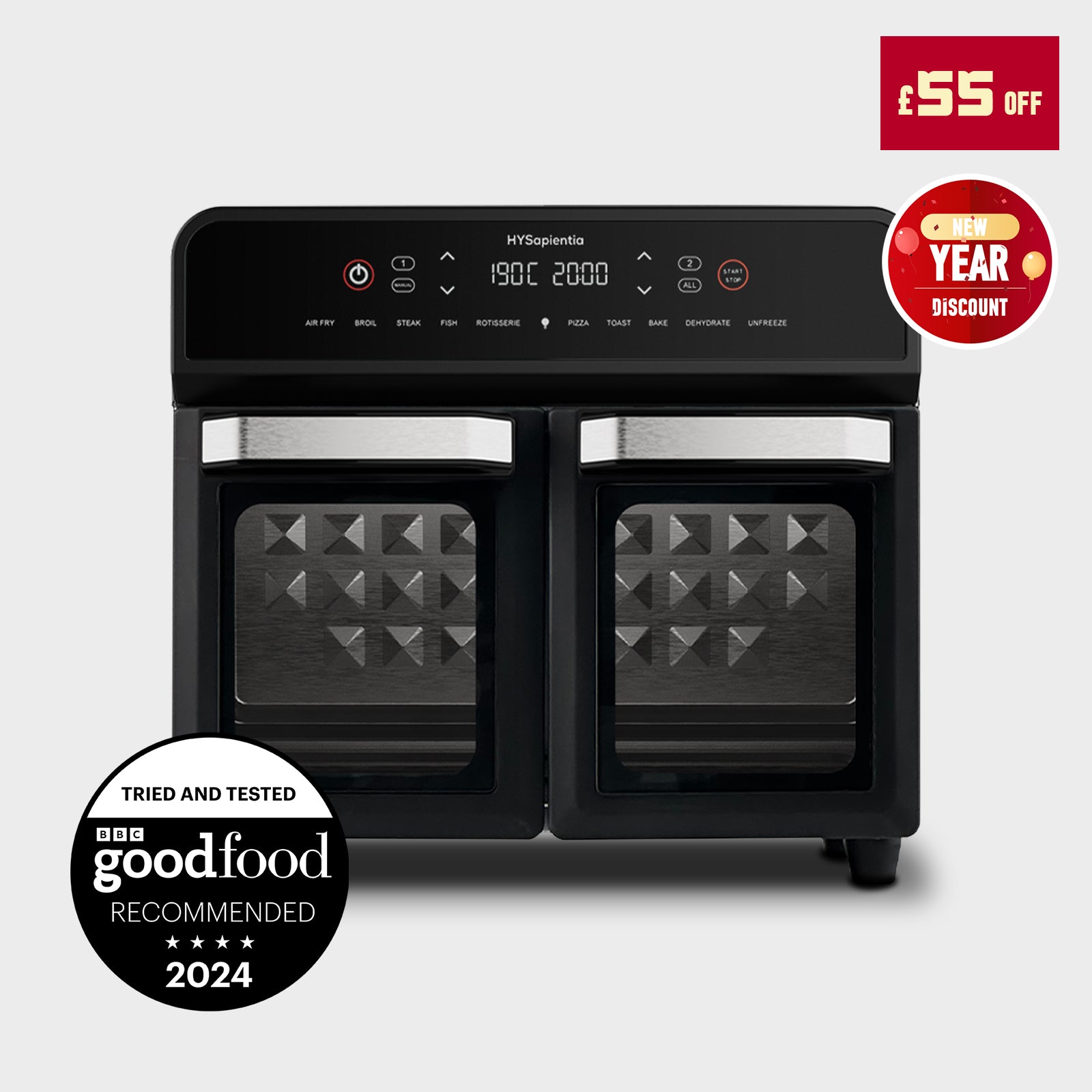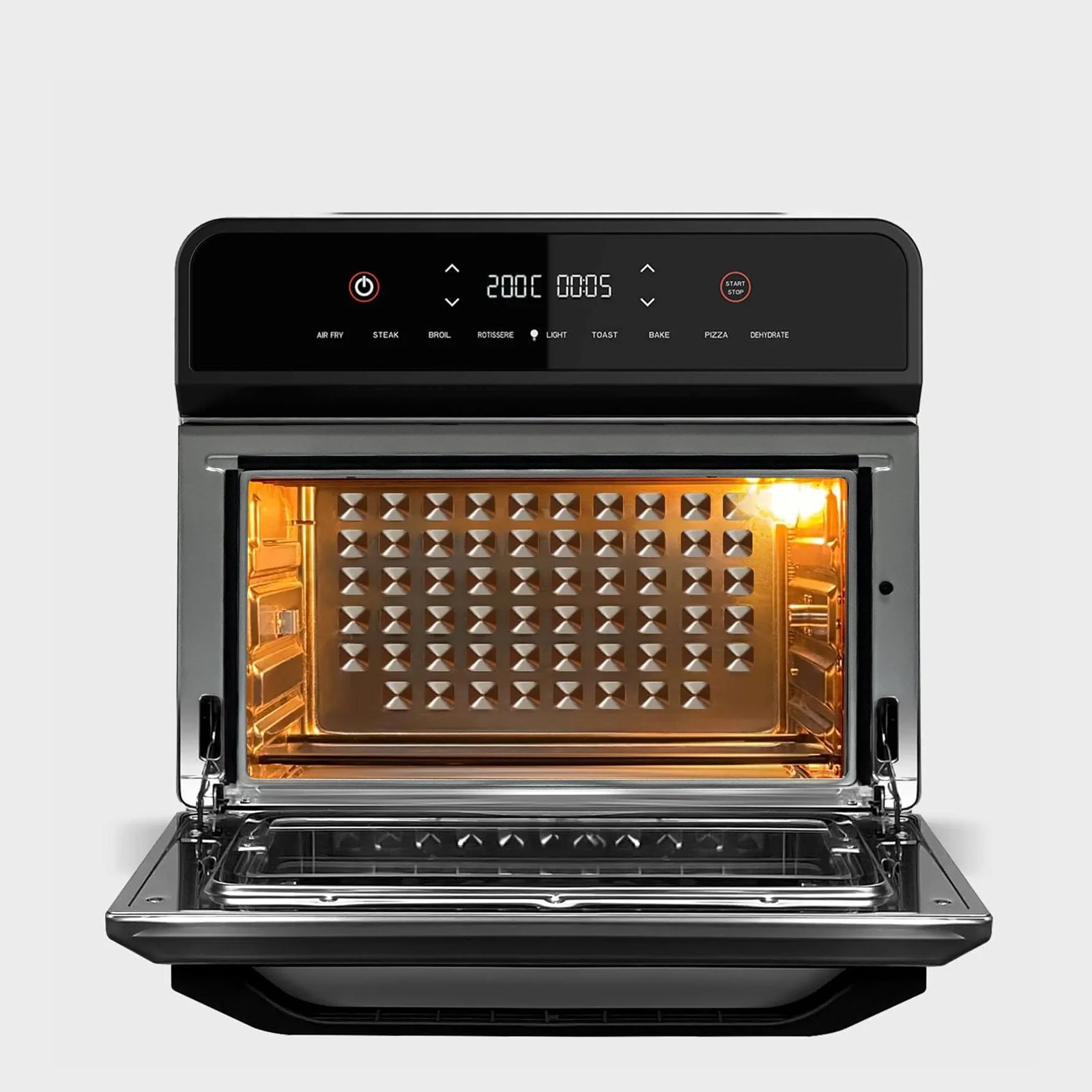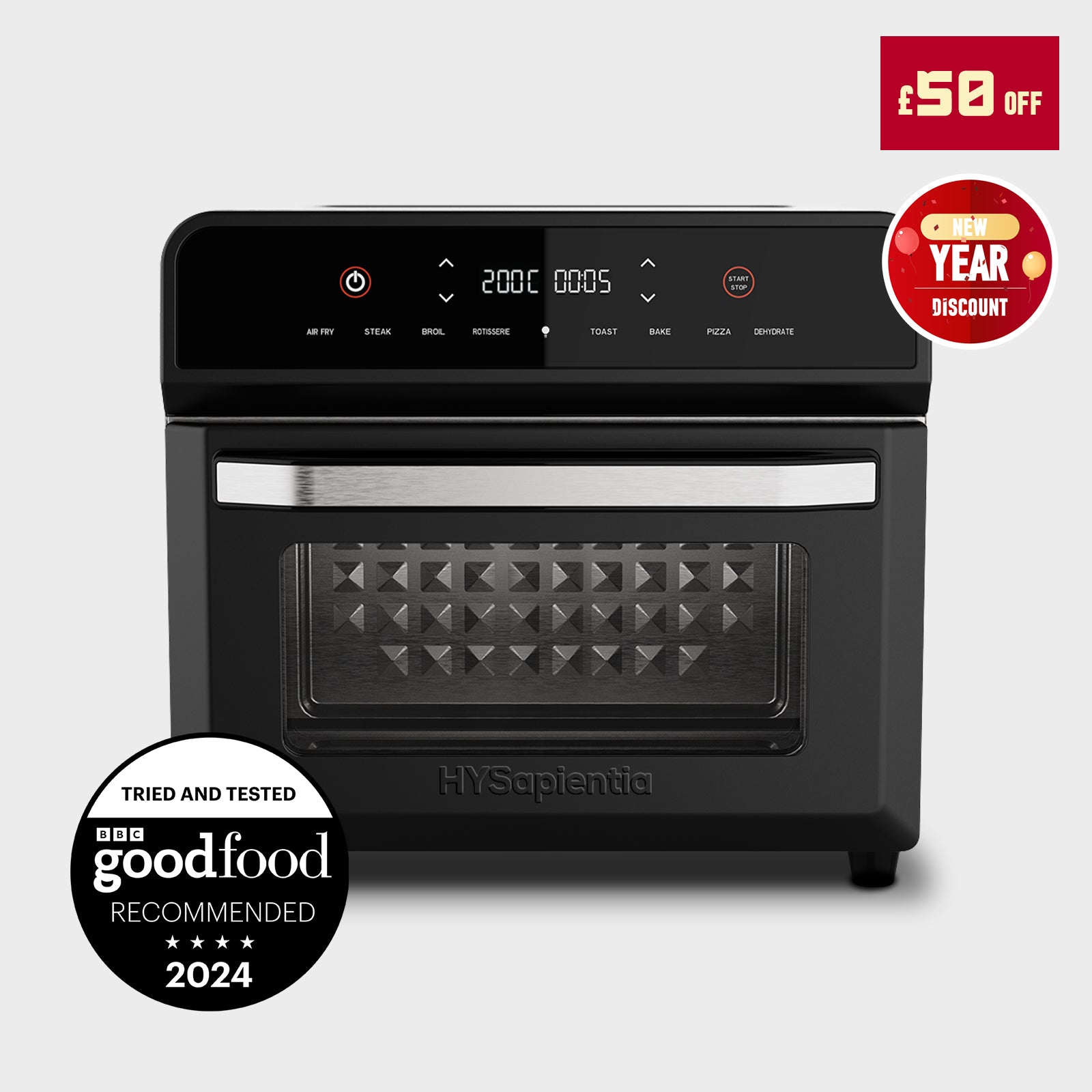At HYSapientia, we're passionate about revolutionizing your kitchen experience with our air fryer ovens. These versatile appliances have quickly become a staple in modern kitchens, thanks to their healthy, convenient, and efficient cooking methods. However, we understand that many of you have noticed that air fryer ovens can sometimes be quite noisy during operation. This noise can be a real pain, disrupting your cooking vibe and even affecting the overall comfort of your home.
So, where exactly does this noise come from, and more importantly, how can we help you reduce it? In this blog, we'll dive into the common sources of air fryer oven noise and share practical tips to minimize it. We want you to enjoy all the benefits of our air fryers without the annoying sound.

1. What is the Normal Noise Level for an Air Fryer Oven?
Understanding the normal noise level for an air fryer oven is crucial to determining whether your appliance is functioning correctly. Here are typical noise ranges for air fryer ovens:
40-50 decibels: Very quiet, almost unnoticeable.
50-60 decibels: Relatively quiet, similar to a normal conversation.
60-70 decibels: Noticeable noise, similar to a vacuum cleaner.
Above 70 decibels: Quite loud, potentially disruptive to daily activities.

Most high-quality air fryer ovens, especially those marketed as low-noise models, fall within the 50-60 decibel range, making them suitable for household use without significant disruption.
For an excellent low-noise option, consider HYSapientia 24L 8-in-1 Digital Air Fryer Oven Wtih Rotisserie. This model is designed to operate quietly while offering versatile cooking functions, making it a great addition to any kitchen.
2. Sources of Air Fryer Oven Noise
2.1 Fan Operation
The primary source of noise in an air fryer oven is the fan. The fan's size, speed, and quality significantly influence the noise level. The design of the air ducts also affects how the noise is propagated.
Fan Size and Speed: Larger fans or those running at higher speeds can be noisier. However, high-quality fans with better bearings and balance can run more quietly.
Air Duct Design: Poorly designed air ducts can amplify the noise, while well-designed ducts can help mitigate it.
2.2 Heating Element
The heating element can produce noise during the heating process, including the sounds of metal expanding and contracting as it heats and cools. This type of noise is generally less noticeable but can add to the overall noise level.
Expansion and Contraction: As the heating element heats up and cools down, the metal can make popping or clicking sounds.
Electrical Hum: Some heating elements may produce a faint hum during operation, especially if they are not properly insulated.
2.3 Food Collision and Movement
During cooking, food items might move or collide with the oven's interior due to the circulating air, generating noise. This is particularly noticeable with harder or larger food items.
Loose Food Items: Lightweight or small items can be tossed around by the air circulation, creating noise.
Heavy or Large Items: Larger food items can bang against the sides of the cooking basket or tray, especially if they are not evenly distributed.
2.4 Structural Design and Materials
The overall design and materials used in the air fryer oven contribute to its noise level. The insulation properties and the construction of the casing play a significant role in how much noise escapes into the environment.
Casing Materials: Thicker, higher-quality materials can help insulate sound better.
Assembly Quality: Poorly assembled units with loose parts can create more noise due to vibrations and rattling.
3. Reasons for Excessive Noise in Air Fryer Ovens
3.1 Fan and Motor Issues
Wear and tear on the fan or motor can cause them to run louder than when they were new. Misalignment or damage can also lead to increased noise.
Fan Blades: Bent or damaged fan blades can cause imbalance, leading to more noise.
Motor Bearings: Worn-out bearings can cause the motor to run noisily.
3.2 Dust and Grease Buildup
Accumulated dust and grease on the fan and heating element can hinder their operation, causing them to work harder and produce more noise.
Cleaning Frequency: Regular cleaning is essential to prevent buildup that can cause noise.
Access to Components: Some models may be easier to clean internally than others, affecting how well you can maintain them.
3.3 Loose Components
Loose screws or components inside the air fryer oven can vibrate or knock against each other during operation, creating additional noise.
Regular Inspections: Periodically check for and tighten any loose parts.
Manufacturer’s Assembly: Quality control during manufacturing affects how likely components are to become loose over time.
3.4 Design Flaws
Some air fryer ovens may have inherent design flaws that make them noisier. Lower-quality products often lack adequate noise insulation or efficient airflow design.
Brand Reputation: Choosing reputable brands known for quality design can help avoid these issues.
Customer Feedback: Reading reviews can reveal common issues with specific models.
4. How to Reduce Air Fryer Oven Noise Impact
4.1 Choosing a Low-Noise Model
When purchasing an air fryer oven, pay attention to user reviews and professional ratings regarding noise levels. Look for models specifically marketed as quiet or low-noise.
Check out HYSapientia Shop for the best air fryer products, designed with advanced noise reduction features for a quieter cooking experience. Come and buy now!
4.2 Using Noise Dampening Mats
Placing a noise-dampening mat under your air fryer oven can help absorb vibrations and reduce the noise that spreads to your kitchen surfaces.
Material: Rubber or silicone mats are effective at dampening noise.
Placement: Ensure the mat is properly sized to fit under the air fryer oven and stable.
4.3 Regular Maintenance and Cleaning
Keeping your air fryer oven clean and well-maintained can prevent excessive noise. Regularly clean the fan and heating element to remove dust and grease buildup.
- Ensure the air fryer oven is completely cool and unplugged before cleaning.
- Use a soft brush or compressed air to clean the fan blades.
- Wipe down the heating element with a damp cloth, avoiding harsh chemicals that might damage the components.
4.4 Checking and Tightening Screws
Periodically inspect your air fryer oven for loose screws or components. Tightening any loose parts can prevent vibrations that cause noise.
- Unplug the air fryer oven and allow it to cool.
- Open the casing or access panel as per the manufacturer's instructions.
- Check all visible screws and components, tightening any that are loose.
4.5 Proper Placement
Position your air fryer oven in a location that minimizes noise disruption. Placing it away from living areas or using a soundproof screen can help contain the noise.
1.Place the air fryer oven on a sturdy, stable surface to reduce vibrations.
2.Consider using a soundproofing screen or placing the air fryer oven in a dedicated cooking area away from common living spaces.
4.6 Avoiding Continuous Long-Term Use
Prolonged use can cause the components of your air fryer oven to overheat, leading to increased noise. Allowing the device to rest between cooking sessions can help maintain a quieter operation.
1.Avoid running the air fryer oven for extended periods without breaks.
2.If you need to cook multiple batches, let the air fryer oven cool down for at least 15 minutes between uses.
5. Future Developments: New Materials, Advanced Fan Technology, and Smart Control Systems
5.1 New Materials
The use of new, sound-absorbing materials in the construction of air fryer ovens can significantly reduce noise. High-density foams and nanomaterials are examples of innovations that can improve noise insulation.
High-Density Foams: These materials can absorb vibrations and noise, making the appliance quieter.
Nanomaterials: Advanced materials at the nanoscale can offer superior sound insulation while being lightweight and durable.
5.2 Advanced Fan Technology
Developing quieter fan technologies, such as brushless motors and optimized blade designs, can reduce the noise produced by air circulation. Intelligent fan control systems can adjust the fan speed based on the cooking requirements, balancing efficiency and noise levels.
Brushless Motors: These motors are typically quieter and more efficient than traditional ones.
Optimized Blade Design: Fan blades designed to minimize turbulence can reduce noise.
5.3 Smart Control Systems
Smart control systems can monitor the air fryer oven's operation in real-time, adjusting settings to minimize noise. These systems can also alert users to potential issues before they become serious, ensuring quieter and more efficient operation.
Real-Time Monitoring: Sensors can detect noise levels and adjust operations to keep the appliance quiet.
Preventive Maintenance Alerts: Smart systems can notify users when maintenance is needed to prevent noise issues.
Conclusion
While air fryer ovens offer numerous benefits, managing their noise can enhance the overall cooking experience and improve home life quality. By understanding the sources of noise and implementing practical maintenance tips, you can significantly reduce the impact of air fryer oven noise. With these insights, you can enjoy all the advantages of an air fryer oven without the disruptive noise, leading to a more pleasant and harmonious home environment.

